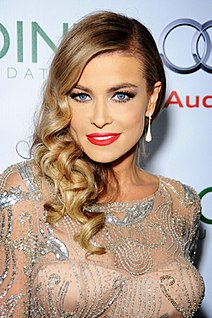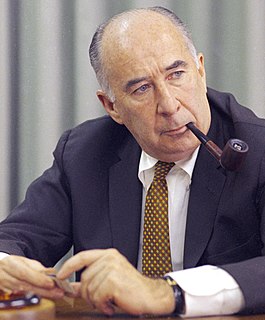A Quote by Viktor E. Frankl
What was really needed was a fundamental change in our attitude toward life. We had to learn ourselves and, furthermore, we had to teach the despairing men, that it did not really matter what we expected from life, but rather what life expected from us.
Related Quotes
It did not really matter what we expected from life, but rather what life expected from us. We needed to stop asking about the meaning of life, and instead to think of ourselves as those who were being questioned by life—daily and hourly. Our answer must consist, not in talk and meditation, but in right action and in right conduct. Life ultimately means taking the responsibility to find the right answer to its problems and to fulfill the tasks which it constantly sets for each individual.
Let us remember, too, that greatness is not always a matter of the scale of one’s life, but of the quality of one’s life. True greatness is not always tied to the scope of our tasks, but to the quality of how we carry out our tasks whatever they are. In that attitude, let us give our time, ourselves, and our talents to the things that really matter now, things which will still matter a thousand years from now.
When we are really honest with ourselves we must admit that our lives are all that really belong to us, so it is how we use our lives that determines what kind of men we are. It is my deepest belief that only by giving life do we find life, that the truest act courage, the strongest act of manliness is to sacrifice ourselves for others in a totally non-violent struggle for justice. To be a man is to suffer for others, God help us to be men.
Many of us have had the attitude that life is something that happens to us and that all we can do is make the best of it. It is basically a victim's position, giving power to people and things outside of ourselves. We are beginning to realize that the power rests in us, that we can choose to create our life the way we want it to be.
Teach him to live rather than to avoid death: life is not breath, but action, the use of our senses, our mind, our faculties, every part of ourselves which makes us conscious of our being. Life consists less in length of days than in the keen sense of living. A man maybe buried at a hundred and may never have lived at all. He would have fared better had he died young.
I went to the woods because I wished to live deliberately, to front only the essential facts of life, and see if I could not learn what it had to teach, and not, when I came to die, discover that I had not lived. I did not wish to live what was not life, living is so dear; nor did I wish to practise resignation, unless it was quite necessary. I wanted to live deep and suck out all the marrow of life, to live so sturdily and Spartan-like as to put to rout all that was not life, to cut a broad swath and shave close, to drive life into a corner, and reduce it to its lowest terms.
Because of the routines we follow, we often forget that life is an ongoing adventure. . . Life is pure adventure, and the sooner we realize that, the quicker we will be able to treat life as art: to bring all our energies to each encounter, to remain flexible enough to notice and admit when what we expected to happen did not happen. We need to remember that we are created creative and can invent new scenarios as frequently as they are needed.
I think the important thing to remember about the Japanese internment is the situation. We had been attacked. Maybe Roosevelt expected it - I rather think he did. I don't think he expected an attack on Pearl Harbor. I think he expected an attack on Southeast Asia. But we were attacked at Pearl Harbor
What had really caused the women's movement was the additional years of human life. At the turn of the century women's life expectancy was forty-six; now it was nearly eighty. Our groping sense that we couldn't live all those years in terms of motherhood alone was "the problem that had no name." Realizing that it was not some freakish personal fault but our common problem as women had enabled us to take the first steps to change our lives.
Our environment, the world in which we live and work, is a mirror of our attitude and expectations. If we feel that our environment could stand some improvement, we can bring about that change for the better by improving our attitude. The world plays no favorites. It's impersonal. It doesn't care who succeeds and who fails. Nor does it care if we change. Our attitude toward life doesn't affect the world and the people in it nearly as much as it affects us.



































